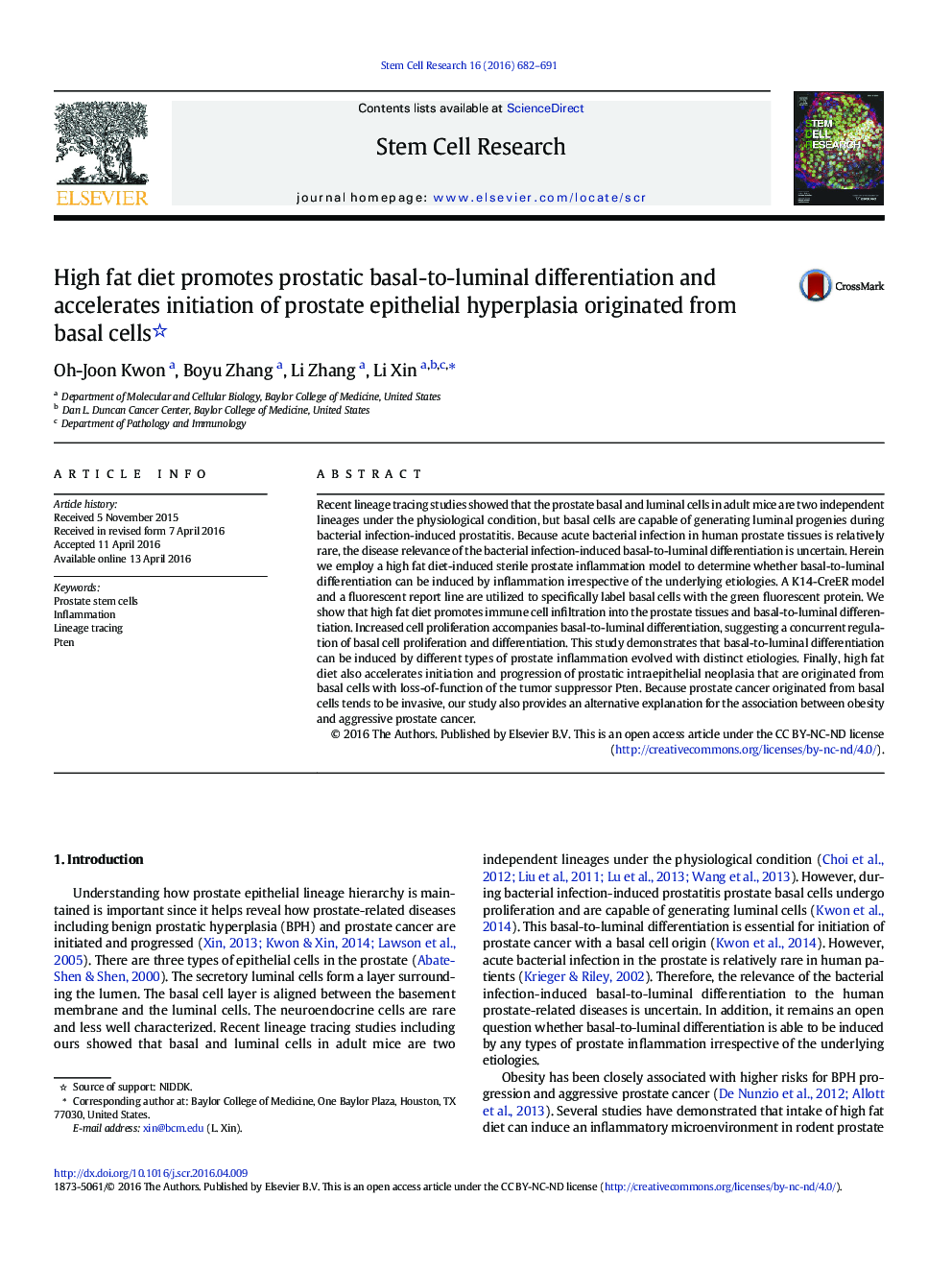| Article ID | Journal | Published Year | Pages | File Type |
|---|---|---|---|---|
| 2094026 | Stem Cell Research | 2016 | 10 Pages |
•High fat diet induced inflammation promotes basal-to-luminal differentiation.•High fat diet promotes initiation of basal cell-derived prostate hyperplasia.•Increase cell proliferation accompanies basal-to-luminal differentiation.•Basal-to-luminal differentiation can be induced by distinct types of inflammation.
Recent lineage tracing studies showed that the prostate basal and luminal cells in adult mice are two independent lineages under the physiological condition, but basal cells are capable of generating luminal progenies during bacterial infection-induced prostatitis. Because acute bacterial infection in human prostate tissues is relatively rare, the disease relevance of the bacterial infection-induced basal-to-luminal differentiation is uncertain. Herein we employ a high fat diet-induced sterile prostate inflammation model to determine whether basal-to-luminal differentiation can be induced by inflammation irrespective of the underlying etiologies. A K14-CreER model and a fluorescent report line are utilized to specifically label basal cells with the green fluorescent protein. We show that high fat diet promotes immune cell infiltration into the prostate tissues and basal-to-luminal differentiation. Increased cell proliferation accompanies basal-to-luminal differentiation, suggesting a concurrent regulation of basal cell proliferation and differentiation. This study demonstrates that basal-to-luminal differentiation can be induced by different types of prostate inflammation evolved with distinct etiologies. Finally, high fat diet also accelerates initiation and progression of prostatic intraepithelial neoplasia that are originated from basal cells with loss-of-function of the tumor suppressor Pten. Because prostate cancer originated from basal cells tends to be invasive, our study also provides an alternative explanation for the association between obesity and aggressive prostate cancer.
